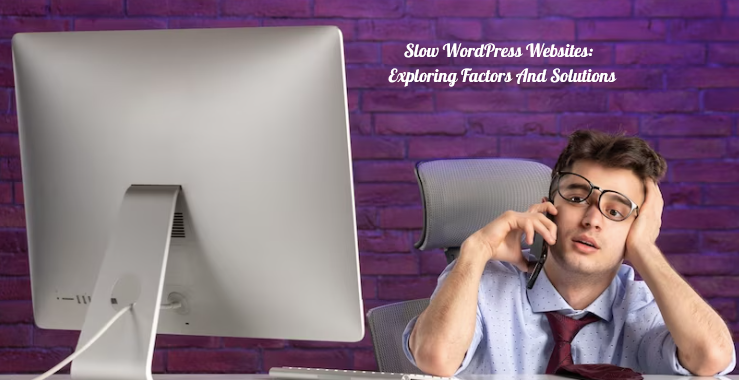Website speed plays a pivotal role in user experience and search engine rankings. Slow-loading websites can frustrate visitors, leading them to abandon the site before it even fully loads. In this article, we delve into the reasons behind slow WordPress websites and provide valuable insights on how to overcome these challenges to enhance user satisfaction and boost your website’s search engine rankings.
Understanding the Impact of Slow Websites
Website speed is not only critical for user experience but also a key ranking factor for search engines like Google. When a website takes too long to load, it leads to high bounce rates and low user engagement. This, in turn, sends negative signals to search engines, indicating that your site might not be offering valuable content or a seamless user experience. Consequently, your site’s search engine rankings can plummet, and you might lose out on potential organic traffic.
Factors Contributing to WordPress Slowness
Images are often the largest elements on a web page, and if they are not optimized for the web, they can significantly slow down your site. Using high-resolution images directly from cameras can result in large file sizes that take longer to load. By compressing images without compromising quality and using responsive image techniques, you can dramatically improve your site’s loading speed.
Read: WordPress Speed Optimization Checklist
Bloated Plugins and Themes
While plugins and themes enhance the functionality and design of your WordPress site, using too many or poorly coded ones can lead to bloated code that slows down your website. It’s essential to regularly audit your plugins and themes, removing those that are no longer necessary and replacing them with lightweight alternatives.
Lack of Caching
Caching involves storing static versions of your web pages to reduce server load and decrease loading times for returning visitors. Without proper caching mechanisms, your server has to generate content dynamically for each user request, leading to slower loading times. Utilizing WordPress caching plugins or server-level caching can significantly speed up your WordPress site.
Unoptimized Database
WordPress relies on databases to store and retrieve content, and over time, these databases can become cluttered with unnecessary data. Regular database maintenance, such as cleaning up post revisions, spam comments, and transient options, can help keep your database optimized and improve site performance.
Web Hosting Quality
The quality of your web hosting provider directly impacts your website’s speed and overall performance. Shared hosting, while cost-effective, can lead to slow loading times, especially during peak traffic periods. Upgrading to a managed WordPress hosting solution or a dedicated server can provide the necessary resources to ensure fast loading speeds.
Read: How To Maximize Your Site’s Online Privacy With VPS UK Hosting
Strategies to Improve WordPress Speed
Here are a few strategies that can help you get started with improving your WordPress website speed.
Image Optimization
Implement a robust image optimization strategy by using tools like ImageMagick or plugins such as Smush. Compress and resize images before uploading them to your site. Additionally, consider lazy loading images to defer their loading until they come into the user’s viewport.
Plugin and Theme Management
Conduct a thorough audit of your installed plugins and themes. Keep only the ones you truly need and ensure they are regularly updated. Opt for well-coded options that are known for their efficiency.
Caching Implementation
Install a caching plugin like WP Super Cache. Configure it to enable browser caching, object caching, and page caching. These settings will significantly reduce loading times for both new and returning visitors.
Database Optimization
Use plugins like WP-Optimize to clean up your database on a regular basis. Remove unnecessary data, optimize database tables, and schedule automated cleanups to keep your site running smoothly.
Hosting Upgrade
Consider moving to a more robust hosting provider that specializes in WordPress hosting. Managed hosting services often offer features like automatic backups, enhanced security, and server-level optimizations, all of which contribute to faster loading times.
Read: Common Website Security Mistakes To Avoid
Conclusion
Slow websites not only frustrate visitors but also hinder your site’s potential to rank well on search engines. By addressing the above factors, you can significantly enhance your WordPress site’s speed and, consequently, improve user experience and search engine rankings.
Remember, achieving a fast-loading website requires ongoing monitoring and optimization. By staying vigilant and implementing the strategies mentioned in this article, you’ll pave the way for a speedier and more successful WordPress website.

